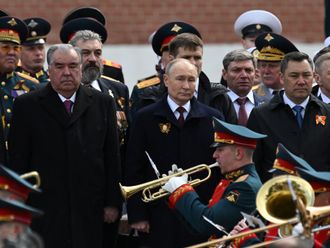Geneva: Vaccines should be ready within months for H1N1 flu, which could mutate and become more severe in winter, the World Health Organisation (WHO) said on Friday.
About 800 people have died from the newly-discovered 'swine flu' virus that has spread to some 160 countries worldwide, WHO spokesman Gregory Hartl said.
"For the moment we haven't seen any changes in the behaviour of the virus. What we are seeing still is a geographic expansion across countries," he said, warning that while its symptoms are now mainly mild, the virus could morph as it circulates.
"We do have to be aware that there could be changes and we have to be prepared for those," he said.
At least 50 governments have placed orders or are negotiating with drugs companies to secure supplies of vaccines against the H1N1 strain, which are still being developed and tested.
The US Food and Drug Administration is helping companies design ways to quickly test experimental versions of H1N1 shots, and the European Medicines Agency said it aimed to approve H1N1 vaccines before the start of the northern hemisphere winter, the traditional 'flu season' in Europe.
Germany has ordered 50 million vaccine doses it hopes to get by the end of September, but authorities there stressed infections so far had been mild, "like a light wave of flu".
The WHO is trying to ensure that health workers in the poorest countries can be vaccinated so hospitals can stay open if the flu becomes more debilitating as it spreads.
Sanofi-Aventis and GlaxoSmithKline have promised to donate 150 million doses and the Geneva-based United Nations agency is negotiating with other producers for more.
It is still unclear if one or two jabs will be required for protection against the virus - a never-before-seen combination of swine, bird and human flu strains. Last week, the WHO described H1N1 as the fastest-moving pandemic ever and said it was pointless to count every case.












